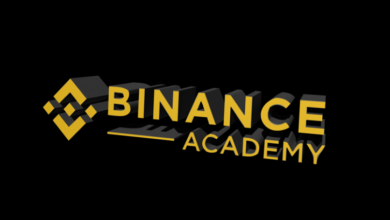Business
CP Rail Joins Blockchain in Transport Alliance

According to the official press release, Canadian Pacific (CP), Canada’s transcontinental railway, has joined the Blockchain in Transport Alliance (BiTA).
The main aim of this move is to introduce improvements in the supply chain industry through blockchain technology. The press release reads:
“In joining the alliance, CP is supporting BiTA’s mission of producing blockchain standards that allow for interoperability between participants in the global supply chain.”
Patrick Duffy, the BiTA president, expressed positivity on this recent development and highlighted the benefits of blockchain in the transportation sector. According to Patrick, this new technology “has the potential to smooth the transactions that occur between shippers and carriers, but it requires the active participation of transportation leaders like CP.”
What is the Blockchain in Transport Alliance?
BiTA is an alliance consisting of around 500 member organizations comprised of a range of industries such as freight, logistics, transportation and the like. The members of BiTA work towards a common goal – to adopt blockchain technology and spread awareness.
Blockchain will be deployed to ensure interoperability between the participants in the supply chain. Its capacity to share events, messages and documents on the platform across all the actors in the ecosystem will guarantee that transactions are secure, authenticated and verifiable.
According to Duffy, the current transportation system needs multiple tracking systems which, in turn, make room for human error. He said:
“When you order a pair of shoes, and they’re manufactured in Vietnam, currently the information you put into the website where you order those shoes goes from a website into an ERP [a type of business management software] that’s transmitted to a manufacturer’s system … the possibilities of the number of people involved and the number of technology systems involved grows exponentially. At each one of those steps, there’s an opportunity for human-induced error.”
In this case, as Duffy explained, companies are coming together for a common cause – the adoption of standards around data. Right now, it lives on multiple different systems, but the proposal, in this case, is to put it on a distributed encrypted online public ledger – a blockchain.
The Utility of Blockchain in Transportation
Blockchain is streamlining a range of industries, and the transportation industry is not an exception. A lot of companies are in the process of tracking their shipment through an interoperable blockchain platform. Recently, big names like Dutch Bank ABN AMRO, Samsung SDS, and the Port of Rotterdam successfully tracked a shipment from South Korea to the Netherlands.
To facilitate international trade, a subsidiary of Abu Dhabi Ports partnered with the Port of Antwerp to conduct a blockchain pilot. The trial was designed to handle the trading of documentation, “providing full cargo visibility and streamlining trade flows and supply chains.”
Also, in the transportation sector, the aviation industry has proven to be a fertile growing ground for blockchain applications. Accenture and Thales have debuted a blockchain as a solution in the aerospace industry, and Canada and the Netherlands recently started the most extensive digital identity test through passport-free flights.
It will be interesting to see how things unfold in the future. The scenario looks positive for now.




darkmarket link darknet market list
blackweb official website darknet drugs
Major thanks for the article post.Much thanks again. Really Cool.
Thanks for sharing, this is a fantastic blog.
Im obliged for the blog post.Thanks Again. Keep writing.
Really many of awesome advice.how to write personal essay thesis writing services best article writing services
Thanks for the article post.Really looking forward to read more.